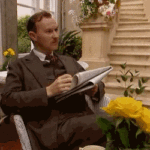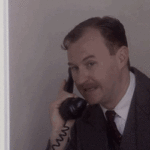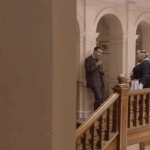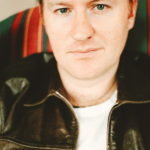The fact that Mark Gatiss is in Sherlock, Being Human, Game of Thrones AND Doctor Who»»> 😆
The fact that he writes the scripts for half of those…<3
QUESTION: Is the battle [for LGBTQ* equality] won, now?
GATISS: Oh, no.
There’s a very seductive idea that everything’s fine and that it’s incredibly easy for someone to come out these days. And you can get that sort of thing from a very metropolitan mindset.
Rather than—despite the internet and everything—there are obviously people feeling very isolated… Not just in tiny villages, but in other communities. Because of their family circumstances, because of how they’ve been brought up, or—particularly—religion.
No, not at all.
Mark Gatiss, on the battle for equality.
(Mark Lawson Talks to Mark Gatiss, April 2012 [x])
[ Skulls & Tea | Sherlock Creator Quotes Collection ]
(via skulls-and-tea)
A rare moment of Skully commentary on my own quote:
So tell me again about how Mark Gatiss finds queerbaiting really, really funny.
Just try me.
(via skulls-and-tea)
When Skully speaks, we listen.
(via the-navel-treatment)
loudest-subtext-in-television:
In series 1 they kept the subtext more subtle. It was harder to notice if you didn’t know what you were looking for, or you hadn’t been trained to see past the heteronormative lens. They did use homoerotic tropes, homosexual references, and clear sexual tension, but they didn’t take it further than that.
( excluding the pilot, because I’m pretty sure that was one of the gayest pilot in the history of TV)In series two the subtext was not so subtle anymore. They stepped up their game, and began to actively intertwine the subtext with the plot. They began using more and more romantic tropes. The amount of homoerotic scenes and subtext laced scenes also increased. Also, they introduced two elements that had been mostly dormant in series one; jealousy and possessiveness, which were solely used when perceived romantic tensions, with other characters, arose.
In Series three, they completely blurred the lines between what is considered subtext, and what is considered text. The sexual and romantic tensions were palpable. Sherlock pining for John was painfully obvious. The romantic parallels that were used stood out, given that they come from extremely well known movies. The Homoerotism was blatant. The romantic tropes and the homosexual stereotypes were unmissable. The text corroborated to further enhance the romantic tension.
The only logical next step, I think, would be to make the subtext/text into indisputable text.
This exactly.
Plus the whole subtext-becomes-literal bit in ASiB with John’s “I always hear ‘punch me in the face’ when you’re speaking, but it’s usually subtext.”
And the elephants hidden in the background in TEH, which turn into a living breathing elephant juuust off-screen that Sherlock nearly comments on, then decides to keep his mouth shut. And the accompanying blog on the case where we learn it’s about two bodies, and John says he reaaally wants to talk about the elephant in the room but it’s part of the Official Secrets Act. And Sherlock commenting he’ll talk about it during his best man’s speech. And Gatiss saying they wrote a very important line in that speech. Which is probably “the universe is rarely so lazy” bit about coincidences, that things being in two groups isn’t a coincidence (i.e. the matching pairs aspect of The Subtext Game). And how it was planned lying. And “something is going to happen.” And they don’t want to “milk it” too much.
Not to mention Gatiss has always said he thinks the way to do revolutionary gay characters is to gently ease the fact of their sexuality into the story. And Moftiss repeatedly tell us they lie about spoilers because they MUST lie about spoilers and can’t believe anyone believes them. And how Moffat has always done the specifically coded subtext with literal meanings that actually come to pass; like 221beemine commented yesterday, Coupling is basically the codebook for the one-for-one substitutions in Sherlock. And how conspiracy theorists on the show are always right.
If they wanted to keep it subtext forever, they wouldn’t blatantly ramp it up and make it so obviously part of the text’s plot by the third series that even casual viewers think at least Sherlock is in love with John. The first two series wouldn’t be organized around the romantic misunderstandings keeping them apart, and the third series wouldn’t dismantle most of those obstacles so that the only one truly remaining is John thinks Sherlock is straight and incapable of romantic feelings even though the audience knows the newspaper articles about Janine are made up. The subtext wouldn’t include a huuuge bit about Sherlock realizing his sexuality in TSoT, and the text wouldn’t confirm he has sexual urges in HLV (porn preference) but apparently not toward women if they wanted to just sit on it forever. The subtext wouldn’t put in huge bits about John returning Sherlock’s feelings if it were supposed to be unrequited.
Add to all that the fact that it’s made clear that romantic relationships and sex are very important to John, but we know he and Sherlock are almost certainly going to end up spending their lives together. Sherlock being gay is as near to actual text as it can get at this point without being outright stated (and remember no straight character ever has to say they’re straight to prove it on a show, and again, plenty of casual viewers believe it to be canon). It’s nearly inconceivable that they could end up living together at this point and John NEVER finds out Sherlock’s gay and in love with him. It would be absurd to have Sherlock’s feelings so obvious that he can’t even keep them off his face anymore in series 3, that he dies and brings himself back to life for John, and cries constantly, and pines and pines and pines for him, but he never says or does anything about it. And it would be a really odd decision for the writers to work so hard to create that dynamic, and code it everywhere, and then decide they’re not going to actually use the drama and tension of it later. The drama of making it spoken at this point is going to drastically outweigh keeping it unspoken.
Plus the whole fact that Moftiss never exactly copy anything, they always add a twist to it. The whole Time Shift documentary on Sherlock Holmes is filled with the gayest clips from Sherlock along with Mark Gatiss talking about The Private Life of Sherlock Holmes being the template for Sherlock, soon after which the narrator says, apropos of seemingly nothing, that Billy Wilder always regretted not making Holmes openly gay. It’s hard to fathom Gatiss as a writer deciding he’s just going to copy TPLoSH and stop there, or that Gatiss as a gay man thinks it would be cute or funny to have Sherlock be closeted forever. Imagine being a gay kid, growing up loving the queer subtext in Sherlock Holmes, and imagining Holmes and Watson in a relationship for decades. Imagine feeling sad how Victorian England made it damn near impossible for love stories to be written about people like you, and that’s still largely the case a century later. Imagine being the kind of guy who called a gay hotline as a kid because you saw it in the background of a television show, and it meant so much to you to see that on TV that you bring it up in interviews. Imagine being the kind of guy who Tweets links to those kinds of things, because you remember being that age, and you know how alone queer kids can feel. Imagine being gay and wishing it weren’t such a big fucking deal, that people could just walk around being gay and no one would care about it. (“I don’t have to,” a lot of you are probably saying.)
When you make your adaptation of Sherlock Holmes, what do you do? Do you keep the setting of oppressive Victorian England? No. You make it in the modern day, so gay characters can exist openly with considerably less strife. So what about your Holmes and Watson? Do you keep them closeted forever, because you find it funny? Well, did you find it all that funny when you were a kid? This idea that gay people exist, but not out in the open? No, that hurt. You called a gay hotline because you felt bad. You see the pressure to stay closeted hurting gay people all the time, even today.
Wouldn’t you have some opinions, some things you might want to say about the remaining factors that keep people closeted today? As a storyteller, wouldn’t you have some ideas of how to best express those views through your art? Wouldn’t it be important to you that bigoted people take those views to heart, instead of feeling defensive? Having grown up seeing that stories with gay romances get labeled as “gay stories,” wouldn’t you know that bigots won’t watch a “gay” show? Wouldn’t you instead do what you’ve always said you’d do, and gently ease people into it so that they’re rooting for a gay couple before they know it?
After all, what was the thing you did like about all that queer subtext? It was subversive. It was right in front of people’s faces and they didn’t get it. It was clever, it made you think. That’s all.
Gatiss got to do the unspoken, subversive bit he loved about TPLoSH for three series. He got to milk it for insane romantic tension. Now he gets to actually take it somewhere and put his own twist on it. If he just straight up copied it and stopped there, it would be the first example I could come up with him actually doing such a thing as a writer. And it would be completely out of character for him a person.
No one can actually read the showrunner’s minds, but if we’re talking balance of probability based on what we know about Moffat and Gatiss and how things have steadily escalated every series, it seems incredibly unlikely their relationship wouldn’t be actualized. It doesn’t match either of their styles as writers, and it doesn’t match how Gatiss operates in real life as regards queer issues. They had the protagonist of their show get shot in the heart and come back to life, but people think “openly gay” is some sacred line they aren’t willing to cross? Really? Or that Gatiss would grow up loving the queer subtext between Holmes and Watson, but now that he finally has his adaptation, he’s decided to pair them off with women, or pair John off with a woman, and keep all the gay stuff behind a curtain forever?
It seems like a very simple deduction to me. We’ll see what happens, but I know where my money is.
—
About | Meta Masterlist | Tags | FAQ


































